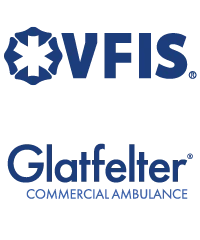Fidelity

Fidelity is defined as the strict observance of promises, duties, etc. or adherence to fact or detail. Unfortunately, some officers and managers are not always honest and may be tempted to divert money and other financial assets from your organization for personal gain. This would be known as a Fidelity Claim. Unfortunate as well is that Fidelity Claims are on the rise.
Directors, managers, chief officers, treasurers, financial secretaries and special event managers all could become a financial drain on any organization if they do not perform with fidelity. The real problem for an organization is that when these losses occur, they generally occur over relatively long periods of time. This may result in the losses being staggeringly high.
There are proven risk control methods for reducing the possibility of the conditions that make Fidelity theft possible. The following are some of these controls:
For Persons With Purchasing, Fund Management And Check Writing Responsibilities:
- Checks should always require two signatures, signed only after they have been written in full. Never sign blank checks or allow the use of signature stamps, even for convenience.
- Have your organization’s bank require signature cards to be kept on file. Your organization should keep these up-to-date.
- Bank statements should be received and reconciled by someone who does not have check writing authority.
- Have an independent third party audit your books annually.
- Whenever possible, do not permit persons with close personal ties (husband/wife; brother/sister; business partners) to have control over organizational check writing or reconciliation. Require purchase orders and invoices for all purchases of property or service. Have these compared to the written checks.
- Separate financial functions as much as practical.
- Conduct background checks on all new officers and members.
- Have all financial policies in writing.
- Review your organization’s insurance policies to assure proper fidelity coverage’s are in place.
For Persons Who Handle Fund Raising or Special Events Cash
- Conduct background checks on all new officers and members.
- Do not permit persons with close personal ties (husband/wife; brother/sister; business partners) to handle cash without a third party present.
- For large amounts of cash or for events occurring over a long period of time, have frequent pick-up and accounting of cash. Collected money should be bank deposited to limit the amount of on-hand cash.
- Have at least two people responsible for reconciliation and deposit of cash.
- Whenever possible have some form of paper trail (ticket stubs, bill of sale, sign-in sheet) so that a close estimate of the anticipated cash can be obtained and confirmed.
- Have all financial policies in writing.
This is a sample guideline furnished to you by VFIS. Your organization should review this guideline and make the necessary modifications to meet your organization's needs. The intent of this guideline is to assist you in reducing exposure to the risk of injury, harm, or damage to personnel, property, and the general public. For additional information on this topic, contact your VFIS Risk Control Representative at (800) 233-1957.
Ask the Risk Specialist
Available Resources
Need Help Finding Something?
Our guided search will walk you through all the content available on ResponderHelp, and get you to what you need fast.
Get Started Now
